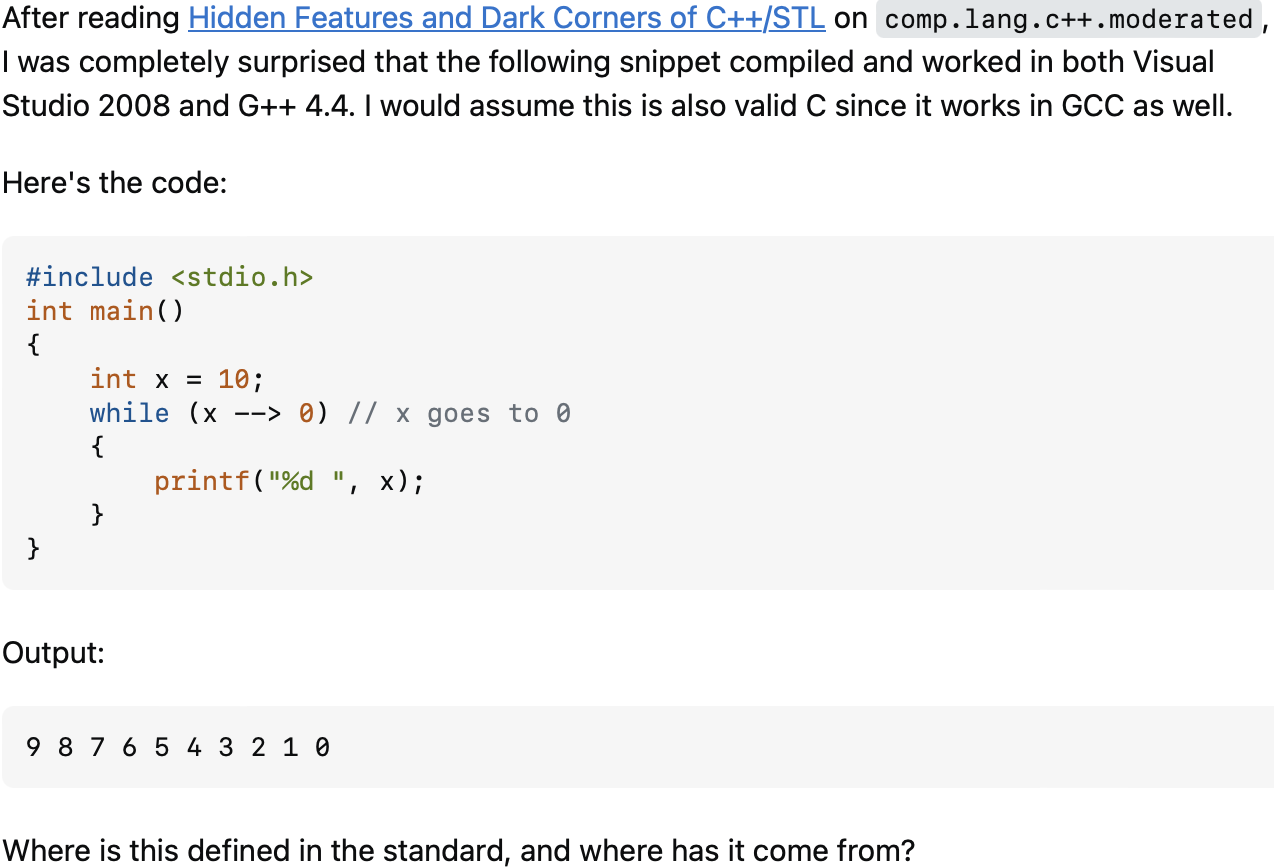Importance of Smart Questions
11 Sep 2024Asking Better Questions
While our teachers used to say there are no dumb questions, that does not mean you should not ask better questions. Very basic and mundane questions can be answered easily through a quick google search. It is better to ask questions after you have dedicated some time researching about your topic. This shows that you are actually caring to putting the time out to find the solution rather than wanting answers being spoonfed to you.
Bad StackOverflow Question
A bad and naive question just wastes everyone’s time. The inquirer must wait for someone knowledgable to answer and the community must muster up the effort to copy what is the first result on google. For example, look at this question from StackOverflow: “why using key word new to initialize a list in C#”. The user compares instantiating objects in C++ and C# and asks why there is a difference between the two. Other people responded, suggesting the user to read the C# documentation and researching just how different these two languages are. A quick google search shows the answer in Microsoft’s C# documentation. Based on the user’s post, you could assume that the user believes C++ and C# must be similar languages because of their name.

An Intriguing Inquiry
A user asks What is –> in C/C++.

A quick goggle search shows that it is equivalent to the arrow operator (obj->property). While seemingly deceptive at first, many people responded that this is just (x--) > 0. X will decrement until it hits zero. While the question seems quite simple, it is how the user formatted the question and introduces his background that really got a lot of people interacting with this post. They introduced where they got the question and went out of their way to test it out. They wrote copied the sample and even gave us their output so that we do not have to go out of our way to replicate the problem. This way, it shows that they are actually interested in the problem and how the answer came about.